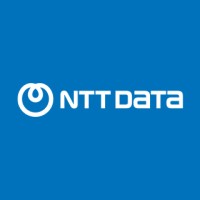Company Details
google-play
187
4,579
5415
google.com
94
GOO_2679708
Completed

Google Play Company CyberSecurity Posture
google.comEnjoy millions of the latest Android apps, games, music, movies, TV, books, magazines & more.
Company Details
google-play
187
4,579
5415
google.com
94
GOO_2679708
Completed
Between 0 and 549

 Google Play Global Score (TPRM)
Google Play Global Score (TPRM)XXXX

Description: The Google Play Store experienced a security breach due to the Necro Trojan infecting more than 11 million devices through fake versions of legitimate Android apps. This sophisticated malware employed steganography and obfuscation tactics to avoid detection and executed malicious activities such as displaying ads, downloading and running files, and creating tunnels through victims' devices. Among the affected applications were popular games and apps such as Spotify and Minecraft obtained from unofficial sources. The severity of the breach is heightened by the Trojan's ability to subscribe to paid services without user consent, signifying a direct financial impact on affected users.
Description: Over 32,000 downloads of Mandrake spyware-laced apps from Google Play have led to a significant cyber security incident. The sophisticated Mandrake Android spyware, discovered by Kaspersky, employs advanced evasion techniques and obfuscation, allowing attackers to take complete control over infected devices and exfiltrate sensitive user data without detection. Despite being present on the platform since 2022, the spyware remained undetected for over two years, with the most downloaded app, AirFS, garnering over 30,000 downloads alone. The impact of this security lapse has raised concerns within the cybersecurity community about the efficacy of current app marketplace security measures.
Description: McAfee uncovered 15 SpyLoan Android apps distributed via Google Play, amassing over 8 million installs. These apps posed as legitimate loan services; however, they were designed to harvest extensive personal data which could result in extortion and financial loss for users. Hosted on a legitimate platform, they exploited user trust and cybersecurity vulnerabilities. Upon discovery, some apps were suspended, while others were updated to adhere to Google Play's policies. The incident underscores the perils of mobile apps that camouflage malicious intent with financial services, spotlighting the need for diligent app store oversight and user caution.
Description: Over 8 million users had installed 15 SpyLoan Android apps from Google Play which targeted users primarily in South America, Southeast Asia, and Africa. The apps, which were designed to look like legitimate loan-offering financial applications, executed a scam by exploiting social engineering tactics to collect excessive permissions and sensitive user data. This resulted in various consequences including extortion, harassment, and financial losses for the victims. Users were deceived through misleading advertisements, and their personal data was compromised as a result of granting these applications access beyond what a loan app would typically require.
Description: Over 11 million Android devices were infected by the new variant of the Necro Trojan malware, which was distributed through fake versions of popular apps and games on the Google Play store and unofficial app sources. The malware employed obfuscation and steganography to evade detection, executing malicious actions such as displaying invisible ads, downloading/executing files, and creating unauthorized subscriptions to paid services. The widespread impact of the infection emphasizes the malware's adaptability and potential for financial and reputational damage to affected users.
Description: The SpyLend malware disguised as a financial app under the name 'Finance Simplified' targeted users on Google Play. Using the guise of providing easy loans, the app exploited permissions to access personal data, leading to blackmail, harassment, and the creation of fake nudes for extortion. With over 100,000 downloads, the impact was significant, resulting in negative reviews and reports of data misuse. The app's actual intent was to siphon sensitive information such as contacts, call logs, and photos, for malicious purposes. Despite reports, the app remained available for download, doubling its reach within a week, and compromising user privacy and financial security.
Description: Google Play was infiltrated by the SpyLend Android malware, affecting 100,000 users, predominantly in India. This malicious app, disguised as 'Finance Simplified,' deceived users by offering easy loans while harvesting excessive permissions. The malware not only stole personal data such as contacts, call logs, photos, and location but also enabled operators to blackmail users through the creation of phony nudes. It represents a significant privacy breach and reveals the platform's vulnerability to hosting apps that facilitate financial crimes and psychological manipulation.
Description: Google Play was found to host 15 SpyLoan Android apps, accumulating over 8 million installs, targeting users primarily in South America, Southeast Asia, and Africa. These apps, mimicking legitimate financial service providers, tricked users into providing sensitive data under the guise of offering quick and easy loans. Users were lured through social media ads and deceptive marketing into downloading the apps, which then requested extensive permissions leading to excessive data access. Malicious actors exploited this information for extortion and harassment, causing significant financial loss and personal distress for the affected individuals. Resultant actions from these breaches include threats, misuse of personal data, and intensive spamming of victims' contacts.
Description: XcodeGhost malware had made its way to the official Google Play app store lending trojans and adware to the consumer's mobile. The malicious Brain Test app avoided the detection by Bouncer – Google’s technology which is supposed to stop malicious apps from entering the store was downloaded between 200,000 and 1 million times. There are various bogus versions of popular games such as “Plants vs Zombies 2”, “Traffic Race” and “Temple Run 2 Zoombie” that can make it possible for criminals to slip their malware past such checks.


Google Play has 263.64% more incidents than the average of same-industry companies with at least one recorded incident.
Google Play has 212.5% more incidents than the average of all companies with at least one recorded incident.
Google Play reported 2 incidents this year: 1 cyber attacks, 1 ransomware, 0 vulnerabilities, 0 data breaches, compared to industry peers with at least 1 incident.
Google Play cyber incidents detection timeline including parent company and subsidiaries

Enjoy millions of the latest Android apps, games, music, movies, TV, books, magazines & more.

Coforge is a global digital services and solutions provider, that leverages emerging technologies and deep domain expertise to deliver real-world business impact for its clients. A focus on select industries, a deep domain understanding of the underlying processes of those industries and partners

We have the world’s best talent that design, run, and manage the most advanced and reliable technology infrastructure each day. Together, we think holistically about the health of these vital technology ecosystems. We are a focused, independent company that builds on our foundation of excellence by

At Orange Business, our ambition is to become the leading european Network and Digital Integrator by leveraging our proven expertise in next-generation connectivity solutions, the cloud and cybersecurity. Our 30,000 women and men are present in 65 countries, where every voice counts. Together, we a

NCS, a subsidiary of Singtel Group, is a leading technology services firm with presence in Asia Pacific and partners with governments and enterprises to advance communities through technology. Combining the experience and expertise of its 13,000-strong team across 57 specialisations, NCS provides di

VOIS (Vodafone Intelligent Solutions) is a strategic arm of Vodafone Group Plc, creating value for customers by delivering intelligent solutions through Talent, Technology & Transformation. As the largest shared services organisation in the global telco industry, our portfolio of next-generation s
At Avaya, we give our customers the freedom to take their business in the directions that benefit them most. We provide the paths for both customers and their employees where every moment big and small can drive in the moment, memorable experiences. The journey is theirs at the pace that makes sense

We’re TD SYNNEX (NYSE: SNX), a leading distributor and solutions aggregator for the IT ecosystem. We’re 23,000 of the IT industry’s best and brightest, who share an unwavering passion for bringing compelling technology products, services and solutions to the world. We’re an innovative partner that

NTT DATA, Inc. is a trusted global innovator of business and technology services. We're committed to helping clients innovate, optimize and transform for long-term success. Our R&D investments help organizations and society move confidently and sustainably into the digital future. As a Global Top Em

Appen has been a leader in AI training data for over 25 years, providing high-quality, diverse datasets that power the world's leading AI models. Our end-to-end platform, deep expertise, and scalable human-in-the-loop services enable AI innovators to build and optimize cutting-edge models. We spec
.png)
Google is taking a step to improve mobile user experience by introducing new tools to identify and flag apps that drain battery excessively.
Google is raising the stakes on app performance by introducing stricter battery consumption standards for apps on the Play Store.
Doha: Qatar s National Cybersecurity Agency has issued a warning to Android users after Google announced the discovery of a critical...
Google and Singapore's Cyber Security Agency renew partnership to enhance national cybersecurity with AI tools and public-private training...
Google and Apple's app stores both have a reputation for being pretty trustworthy these days. It's easy to assume that if an app is in...
With a goal to curb malware and financial scams, Google has announced a new policy requiring developer verification for all Android app...
Cybersecurity researchers have discovered a nascent Android remote access trojan (RAT) called PlayPraetor that has infected more than 11,000...
Mobile threat researchers at Avast have detected eight apps on the Google Play Store that allow people to stalk employees, romantic partners, or kids.
Geopolitical tensions heighten cyber threats, potentially disrupting essential services in Singapore, warns CSA chief David Koh,...

Explore insights on cybersecurity incidents, risk posture, and Rankiteo's assessments.
The official website of Google Play is https://play.google.com/store.
According to Rankiteo, Google Play’s AI-generated cybersecurity score is 233, reflecting their Critical security posture.
According to Rankiteo, Google Play currently holds 0 security badges, indicating that no recognized compliance certifications are currently verified for the organization.
According to Rankiteo, Google Play is not certified under SOC 2 Type 1.
According to Rankiteo, Google Play does not hold a SOC 2 Type 2 certification.
According to Rankiteo, Google Play is not listed as GDPR compliant.
According to Rankiteo, Google Play does not currently maintain PCI DSS compliance.
According to Rankiteo, Google Play is not compliant with HIPAA regulations.
According to Rankiteo,Google Play is not certified under ISO 27001, indicating the absence of a formally recognized information security management framework.
Google Play operates primarily in the IT Services and IT Consulting industry.
Google Play employs approximately 187 people worldwide.
Google Play presently has no subsidiaries across any sectors.
Google Play’s official LinkedIn profile has approximately 4,579 followers.
Google Play is classified under the NAICS code 5415, which corresponds to Computer Systems Design and Related Services.
No, Google Play does not have a profile on Crunchbase.
Yes, Google Play maintains an official LinkedIn profile, which is actively utilized for branding and talent engagement, which can be accessed here: https://www.linkedin.com/company/google-play.
As of November 27, 2025, Rankiteo reports that Google Play has experienced 9 cybersecurity incidents.
Google Play has an estimated 36,297 peer or competitor companies worldwide.
Incident Types: The types of cybersecurity incidents that have occurred include Breach, Cyber Attack and Ransomware.
Total Financial Loss: The total financial loss from these incidents is estimated to be $0.
Detection and Response: The company detects and responds to cybersecurity incidents through an containment measures with some apps were suspended, and remediation measures with some apps were updated to adhere to google play's policies..
Title: XcodeGhost Malware on Google Play Store
Description: XcodeGhost malware had made its way to the official Google Play app store lending trojans and adware to the consumer's mobile. The malicious Brain Test app avoided the detection by Bouncer – Google’s technology which is supposed to stop malicious apps from entering the store was downloaded between 200,000 and 1 million times. There are various bogus versions of popular games such as “Plants vs Zombies 2”, “Traffic Race” and “Temple Run 2 Zoombie” that can make it possible for criminals to slip their malware past such checks.
Type: Malware
Attack Vector: Malicious Apps
Vulnerability Exploited: Google Play Store Security
Threat Actor: Unknown
Motivation: Malicious Intent
Title: Mandrake Spyware Incident on Google Play
Description: Over 32,000 downloads of Mandrake spyware-laced apps from Google Play have led to a significant cyber security incident. The sophisticated Mandrake Android spyware, discovered by Kaspersky, employs advanced evasion techniques and obfuscation, allowing attackers to take complete control over infected devices and exfiltrate sensitive user data without detection. Despite being present on the platform since 2022, the spyware remained undetected for over two years, with the most downloaded app, AirFS, garnering over 30,000 downloads alone. The impact of this security lapse has raised concerns within the cybersecurity community about the efficacy of current app marketplace security measures.
Type: Malware
Attack Vector: Spyware through malicious apps
Title: Necro Trojan Malware Infection
Description: Over 11 million Android devices were infected by the new variant of the Necro Trojan malware, which was distributed through fake versions of popular apps and games on the Google Play store and unofficial app sources. The malware employed obfuscation and steganography to evade detection, executing malicious actions such as displaying invisible ads, downloading/executing files, and creating unauthorized subscriptions to paid services. The widespread impact of the infection emphasizes the malware's adaptability and potential for financial and reputational damage to affected users.
Type: Malware Infection
Attack Vector: Fake AppsUnofficial App Sources
Vulnerability Exploited: Obfuscation TechniquesSteganography
Motivation: Financial GainData Theft
Title: Google Play Store Security Breach by Necro Trojan
Description: The Google Play Store experienced a security breach due to the Necro Trojan infecting more than 11 million devices through fake versions of legitimate Android apps. This sophisticated malware employed steganography and obfuscation tactics to avoid detection and executed malicious activities such as displaying ads, downloading and running files, and creating tunnels through victims' devices. Among the affected applications were popular games and apps such as Spotify and Minecraft obtained from unofficial sources. The severity of the breach is heightened by the Trojan's ability to subscribe to paid services without user consent, signifying a direct financial impact on affected users.
Type: Malware Infection
Attack Vector: Fake Android Apps
Threat Actor: Necro Trojan
Motivation: Financial Gain
Title: SpyLoan Android Apps Data Breach
Description: Google Play was found to host 15 SpyLoan Android apps, accumulating over 8 million installs, targeting users primarily in South America, Southeast Asia, and Africa. These apps, mimicking legitimate financial service providers, tricked users into providing sensitive data under the guise of offering quick and easy loans. Users were lured through social media ads and deceptive marketing into downloading the apps, which then requested extensive permissions leading to excessive data access. Malicious actors exploited this information for extortion and harassment, causing significant financial loss and personal distress for the affected individuals. Resultant actions from these breaches include threats, misuse of personal data, and intensive spamming of victims' contacts.
Type: Data Breach
Attack Vector: Malicious Mobile Apps
Vulnerability Exploited: User Trust in App Store and Social Media Ads
Threat Actor: Unknown Malicious Actors
Motivation: Extortion and Harassment
Title: McAfee Uncovers SpyLoan Android Apps
Description: McAfee uncovered 15 SpyLoan Android apps distributed via Google Play, amassing over 8 million installs. These apps posed as legitimate loan services; however, they were designed to harvest extensive personal data which could result in extortion and financial loss for users. Hosted on a legitimate platform, they exploited user trust and cybersecurity vulnerabilities. Upon discovery, some apps were suspended, while others were updated to adhere to Google Play's policies. The incident underscores the perils of mobile apps that camouflage malicious intent with financial services, spotlighting the need for diligent app store oversight and user caution.
Type: Data Breach
Attack Vector: Malicious Apps
Vulnerability Exploited: User Trust & Cybersecurity Vulnerabilities
Motivation: Extortion and Financial Gain
Title: SpyLend Android Malware Infiltration
Description: Google Play was infiltrated by the SpyLend Android malware, affecting 100,000 users, predominantly in India. This malicious app, disguised as 'Finance Simplified,' deceived users by offering easy loans while harvesting excessive permissions. The malware not only stole personal data such as contacts, call logs, photos, and location but also enabled operators to blackmail users through the creation of phony nudes. It represents a significant privacy breach and reveals the platform's vulnerability to hosting apps that facilitate financial crimes and psychological manipulation.
Type: Malware Infiltration
Attack Vector: Malicious App
Vulnerability Exploited: Excessive Permissions
Motivation: Data TheftBlackmail
Title: SpyLend Malware Incident
Description: The SpyLend malware disguised as a financial app under the name 'Finance Simplified' targeted users on Google Play. Using the guise of providing easy loans, the app exploited permissions to access personal data, leading to blackmail, harassment, and the creation of fake nudes for extortion. With over 100,000 downloads, the impact was significant, resulting in negative reviews and reports of data misuse. The app's actual intent was to siphon sensitive information such as contacts, call logs, and photos, for malicious purposes. Despite reports, the app remained available for download, doubling its reach within a week, and compromising user privacy and financial security.
Type: Malware
Attack Vector: Mobile Application
Vulnerability Exploited: Excessive Permissions
Motivation: BlackmailHarassmentExtortion
Common Attack Types: The most common types of attacks the company has faced is Breach.
Identification of Attack Vectors: The company identifies the attack vectors used in incidents through Google Play Store, Malicious apps on Google Play, Google Play StoreUnofficial App Sources, Fake Android Apps, Mobile Applications, Google Play Store, Google Play and Mobile Application.

Systems Affected: Mobile Devices

Data Compromised: Sensitive user data
Systems Affected: Android devices

Systems Affected: Android Devices
Brand Reputation Impact: High

Systems Affected: 11 million devices

Data Compromised: Extensive Personal Data

Data Compromised: Contacts, Call logs, Photos, Location

Data Compromised: Contacts, Call logs, Photos
Systems Affected: Mobile Devices
Average Financial Loss: The average financial loss per incident is $0.00.
Commonly Compromised Data Types: The types of data most commonly compromised in incidents are Sensitive user data, Personal Data, Sensitive Data, Personal Data, Contacts, Call Logs, Photos, Location, , Contacts, Call Logs, Photos and .

Entity Name: Google
Entity Type: Company
Industry: Technology
Location: Global
Customers Affected: Between 200,000 and 1 million

Entity Name: Google Play
Entity Type: App Marketplace
Industry: Technology

Entity Name: Google
Entity Type: Company
Industry: Technology
Location: Global
Customers Affected: 11 million

Entity Name: Google Play Store
Entity Type: App Store
Industry: Technology
Customers Affected: 11 million

Entity Name: Google Play
Entity Type: App Store
Industry: Technology
Location: Global
Customers Affected: Over 8 million

Entity Name: Google Play
Entity Type: App Store
Industry: Technology
Customers Affected: Over 8 million installs

Entity Name: Google Play
Entity Type: Platform
Industry: Technology
Location: Global
Customers Affected: 100,000 users, predominantly in India

Entity Name: Google Play Users
Entity Type: Individuals
Industry: Technology
Customers Affected: 100000

Containment Measures: Some apps were suspended
Remediation Measures: Some apps were updated to adhere to Google Play's policies

Type of Data Compromised: Sensitive Data
Number of Records Exposed: Over 8 million
Sensitivity of Data: High

Type of Data Compromised: Personal Data

Type of Data Compromised: Contacts, Call logs, Photos, Location
Number of Records Exposed: 100,000
Sensitivity of Data: High

Type of Data Compromised: Contacts, Call logs, Photos
Prevention of Data Exfiltration: The company takes the following measures to prevent data exfiltration: Some apps were updated to adhere to Google Play's policies.
Handling of PII Incidents: The company handles incidents involving personally identifiable information (PII) through by some apps were suspended.

Lessons Learned: The incident underscores the perils of mobile apps that camouflage malicious intent with financial services, spotlighting the need for diligent app store oversight and user caution.
Key Lessons Learned: The key lessons learned from past incidents are The incident underscores the perils of mobile apps that camouflage malicious intent with financial services, spotlighting the need for diligent app store oversight and user caution.

Source: Kaspersky
Additional Resources: Stakeholders can find additional resources on cybersecurity best practices at and Source: Kaspersky.

Entry Point: Google Play Store

Entry Point: Malicious apps on Google Play

Entry Point: Google Play Store, Unofficial App Sources,

Entry Point: Fake Android Apps

Entry Point: Google Play Store

Entry Point: Google Play

Entry Point: Mobile Application
Last Attacking Group: The attacking group in the last incident were an Unknown, Necro Trojan and Unknown Malicious Actors.
Highest Financial Loss: The highest financial loss from an incident was Significant.
Most Significant Data Compromised: The most significant data compromised in an incident were Sensitive user data, Personal Data, Sensitive Data, Extensive Personal Data, Contacts, Call Logs, Photos, Location, , Contacts, Call Logs, Photos and .
Containment Measures in Most Recent Incident: The containment measures taken in the most recent incident was Some apps were suspended.
Most Sensitive Data Compromised: The most sensitive data compromised in a breach were Sensitive Data, Contacts, Photos, Location, Call Logs, Extensive Personal Data, Sensitive user data and Personal Data.
Number of Records Exposed in Most Significant Breach: The number of records exposed in the most significant breach was 8.1M.
Most Significant Lesson Learned: The most significant lesson learned from past incidents was The incident underscores the perils of mobile apps that camouflage malicious intent with financial services, spotlighting the need for diligent app store oversight and user caution.
Most Recent Source: The most recent source of information about an incident is Kaspersky.
Most Recent Entry Point: The most recent entry point used by an initial access broker were an Malicious apps on Google Play, Google Play Store, Mobile Application, Fake Android Apps, Google Play and Mobile Applications.
.png)
Angular is a development platform for building mobile and desktop web applications using TypeScript/JavaScript and other languages. Prior to versions 19.2.16, 20.3.14, and 21.0.1, there is a XSRF token leakage via protocol-relative URLs in angular HTTP clients. The vulnerability is a Credential Leak by App Logic that leads to the unauthorized disclosure of the Cross-Site Request Forgery (XSRF) token to an attacker-controlled domain. Angular's HttpClient has a built-in XSRF protection mechanism that works by checking if a request URL starts with a protocol (http:// or https://) to determine if it is cross-origin. If the URL starts with protocol-relative URL (//), it is incorrectly treated as a same-origin request, and the XSRF token is automatically added to the X-XSRF-TOKEN header. This issue has been patched in versions 19.2.16, 20.3.14, and 21.0.1. A workaround for this issue involves avoiding using protocol-relative URLs (URLs starting with //) in HttpClient requests. All backend communication URLs should be hardcoded as relative paths (starting with a single /) or fully qualified, trusted absolute URLs.
Forge (also called `node-forge`) is a native implementation of Transport Layer Security in JavaScript. An Uncontrolled Recursion vulnerability in node-forge versions 1.3.1 and below enables remote, unauthenticated attackers to craft deep ASN.1 structures that trigger unbounded recursive parsing. This leads to a Denial-of-Service (DoS) via stack exhaustion when parsing untrusted DER inputs. This issue has been patched in version 1.3.2.
Forge (also called `node-forge`) is a native implementation of Transport Layer Security in JavaScript. An Integer Overflow vulnerability in node-forge versions 1.3.1 and below enables remote, unauthenticated attackers to craft ASN.1 structures containing OIDs with oversized arcs. These arcs may be decoded as smaller, trusted OIDs due to 32-bit bitwise truncation, enabling the bypass of downstream OID-based security decisions. This issue has been patched in version 1.3.2.
Suricata is a network IDS, IPS and NSM engine developed by the OISF (Open Information Security Foundation) and the Suricata community. Prior to versions 7.0.13 and 8.0.2, working with large buffers in Lua scripts can lead to a stack overflow. Users of Lua rules and output scripts may be affected when working with large buffers. This includes a rule passing a large buffer to a Lua script. This issue has been patched in versions 7.0.13 and 8.0.2. A workaround for this issue involves disabling Lua rules and output scripts, or making sure limits, such as stream.depth.reassembly and HTTP response body limits (response-body-limit), are set to less than half the stack size.
Suricata is a network IDS, IPS and NSM engine developed by the OISF (Open Information Security Foundation) and the Suricata community. In versions from 8.0.0 to before 8.0.2, a NULL dereference can occur when the entropy keyword is used in conjunction with base64_data. This issue has been patched in version 8.0.2. A workaround involves disabling rules that use entropy in conjunction with base64_data.

Get company history
















Every week, Rankiteo analyzes billions of signals to give organizations a sharper, faster view of emerging risks. With deeper, more actionable intelligence at their fingertips, security teams can outpace threat actors, respond instantly to Zero-Day attacks, and dramatically shrink their risk exposure window.
Identify exposed access points, detect misconfigured SSL certificates, and uncover vulnerabilities across the network infrastructure.
Gain visibility into the software components used within an organization to detect vulnerabilities, manage risk, and ensure supply chain security.
Monitor and manage all IT assets and their configurations to ensure accurate, real-time visibility across the company's technology environment.
Leverage real-time insights on active threats, malware campaigns, and emerging vulnerabilities to proactively defend against evolving cyberattacks.




